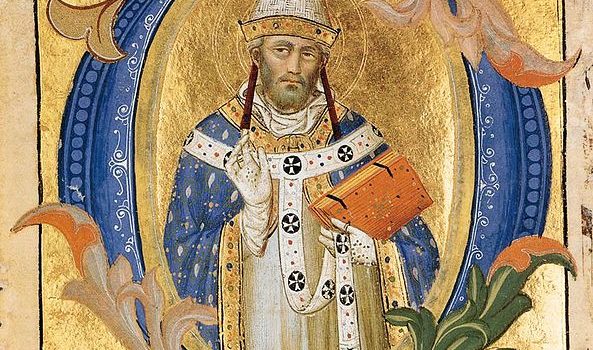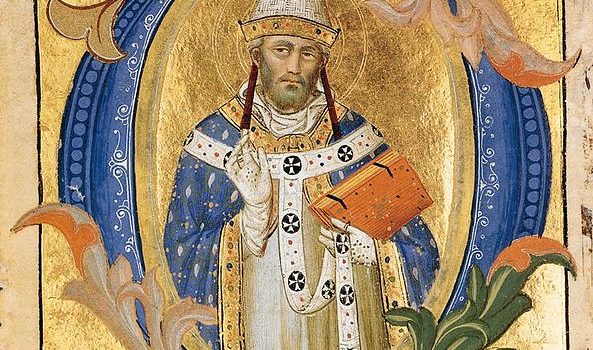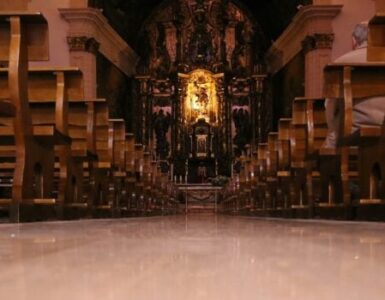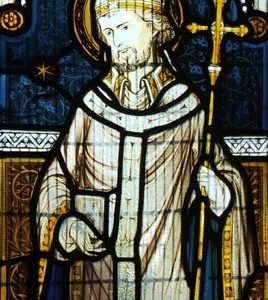We know that Pope St. Clement was Roman, was our fourth pope and was martyred outside of Rome, but this information is about all we know with certainty. According to tradition he was probably a freed man in the imperial household and was baptized by St. Peter. He succeeded Cletus as pope in 91, and was exiled to the Crimea by Emperor Trajan. He preached with great zeal to the prisoners working in the mines there. Because of this he was condemned to death, bound and thrown into the sea with an anchor around his neck. It is also agreed by scholars that he was the author of a letter to the Corinthians in which he rebuked them for a schism that had broken out in their church. The letter is of particular historical importance as one of the outstanding documents of the early Church and significant as an instance of the bishop of Rome intervening authoritatively as the pre-eminent authority in the affairs of another apostolic church to settle a dispute as early as the first century.
About 868 St. Cyril, when in the Crimea on the way to evangelize the Chazars, dug up some bones in a mound (not in a tomb under the sea), and also an anchor. These were believed to be the relics of St. Clement. They were carried by St. Cyril to Rome, and deposited by Adrian II with those of St. Ignatius of Antioch in the high altar of the basilica of St. Clement in Rome. The history of this translation is evidently quite truthful, but there seems to have been no tradition with regard to the mound, which simply looked a likely place to be a tomb. The anchor appears to be the only evidence of identity but we cannot gather from the account that it belonged to the scattered bones.
Prayer
Heavenly Father, we thank you for this holy pope that You gave to shepherd Your flock as well as all those whom You have put in authority. Help us, Father, to be submissive and docile to them, knowing that when they make infallible statements that they are speaking for You. Amen.
From Johnnette Benkovic’s Graceful Living: Meditations to Help You Grow Closer to God Day by Day
If man applies the virtues planted in his soul to the right purpose, he will be like God. The image we depict must not be that of one who is unlike God; for one who is harsh and irascible and proud would display the image of a despot. Let us not imprint on ourselves the image of a despot, but let Christ paint his image in us.
— From an instruction of St. Columban
Which virtues are the opposites of harshness, irascibility, and pride? How can I employ these virtues today to be more like God?
Other Saints We Remember Today
- St. Columban (615), Abbot, Missionary
- Blessed Migeul Agustin Pro (1927), Priest, Martyr
- St. Felicitas (2nd Century), Martyr, mother of the 7 Holy Brothers (July 10)
image: Don Silvestro dei Gherarducci, Public domain, via Wikimedia Commons













